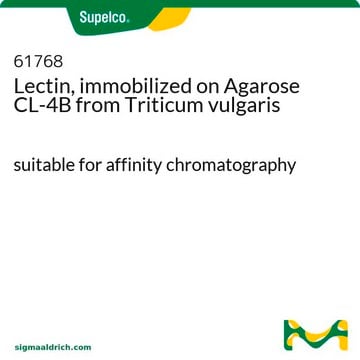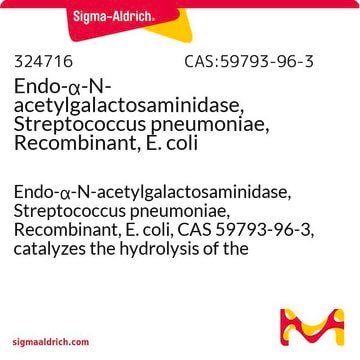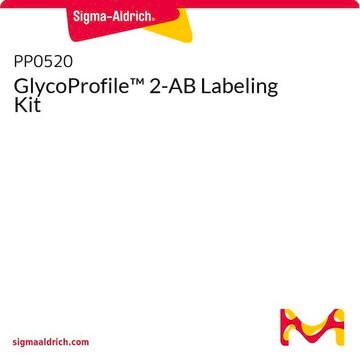E9030
Endoglycoceramidase II from Rhodococcus sp.
aqueous solution
Synonym(s):
EGCase, ceramide glycanase, glycosyl-N-acetyl-sphingosine 1,1-β-D-glucanohydrolase, oligoglycosylglucosyl(1↔1)ceramide glycohydrolase, oligoglycosylglucosylceramide glycohydrolase
About This Item
Recommended Products
recombinant
expressed in E. coli
Quality Level
conjugate
(Lipid-linked)
form
solution
mol wt
58.9 kDa
shipped in
dry ice
storage temp.
−20°C
Looking for similar products? Visit Product Comparison Guide
Application
Unit Definition
Physical form
Storage Class Code
10 - Combustible liquids
WGK
WGK 3
Flash Point(F)
Not applicable
Flash Point(C)
Not applicable
Personal Protective Equipment
Certificates of Analysis (COA)
Search for Certificates of Analysis (COA) by entering the products Lot/Batch Number. Lot and Batch Numbers can be found on a product’s label following the words ‘Lot’ or ‘Batch’.
Already Own This Product?
Find documentation for the products that you have recently purchased in the Document Library.
Our team of scientists has experience in all areas of research including Life Science, Material Science, Chemical Synthesis, Chromatography, Analytical and many others.
Contact Technical Service







